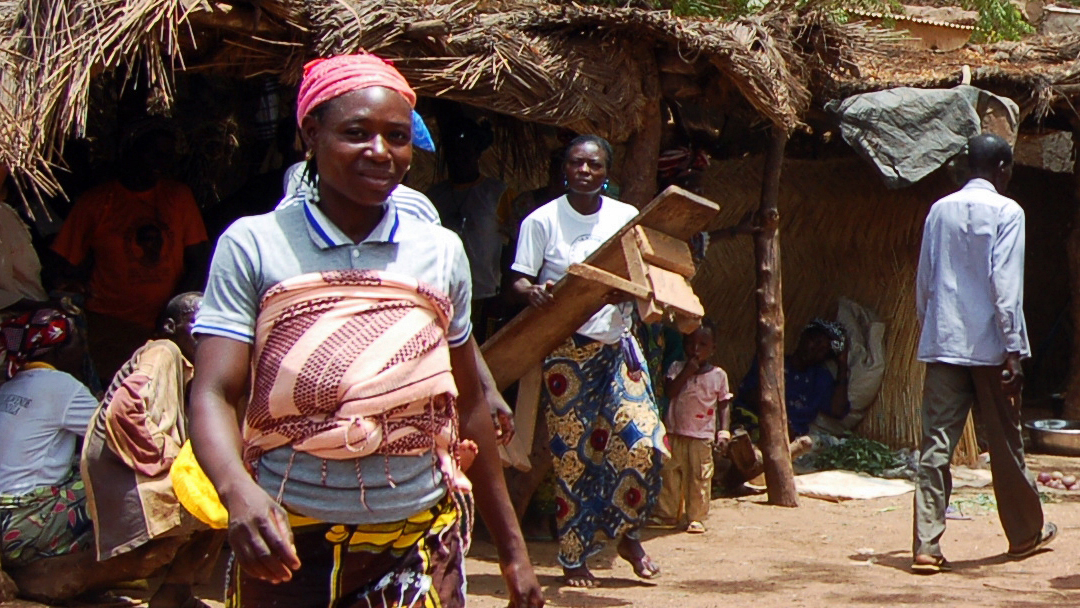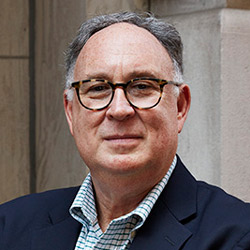Recently I had the unexpected opportunity to travel back to Trickle Up’s earliest days. I participated in a panel discussion in Washington and, afterwards, a woman resplendent in an African print dress and headscarf, introduced herself as Coumba Marenah. She explained that she had received the support of Trickle Up for some of her community development women’s groups in The Gambia, a small country in West Africa, in the 1980’s – starting two years after Trickle Up began – and later became a champion of our approach in several African countries.
With a population of 1.9 million, The Gambia is almost entirely surrounded by Senegal and is one of the poorest countries in the African region. Coumba, who now lives in Detroit, headed the Government Community Development Women’s Program from 1976 to 1984 and found Trickle Up through an American civil rights organization.
“With Trickle Up, we helped women become more entrepreneurial,” Coumba told me. Peanuts were the major cash crop in The Gambia, and Coumba was looking for a way to help women generate more profits from their harvests. While women often came to the local market to sell their peanuts and horticultural produce, they were accustomed to selling just enough to cover immediate needs. Trickle Up helped them see the value of staying longer at the market, in order to sell more and go beyond subsistence income, as well as how to improve their sales techniques.
“We helped them learn how to generate more value for their products,” Coumba said, “and we helped them learn to diversify.” A typical second product, in addition to peanuts, was selling small bags of drinking water. “We helped teach women to understand all the parts of business.”
Based upon her success with women in her country and her experience with Trickle Up in her home country, Coumba received a grant from the International Labor Organization, a UN agency, to bring the Trickle Up approach to Ghana, Ethiopia and Kenya. “I introduced the concept of ‘value added’ to whatever was done.” In Ethiopia, for example, she introduced a Ghanaian expert in advanced pottery to a group of women who learned the art and expanded their pottery businesses.
People naturally have to think about consumption and immediate needs. Trickle Up was about investing and planning for the future. They learned that, if you have to spend all of your income right away, you will be able to plan for the future. We empowered women not to be dependent.
Coumba Marenah is a community organizer and early chamption of Trickle Up’s work with women in Africa.
In addition to helping women learn how to achieve success at a micro and subsistence level, she helped them develop savings habits. Based on the cooperative thrift and credit model that was popular in the Gambia in the 70’s, as well as benefitting from Coumba’s experience as a community organizer, women gained access to credit for business expansion and family needs. Trickle Up savings groups also were important sources of peer solidarity. “Women were able to learn from each other,” she recalled. “Community and cohesiveness are key, especially when you have a face a crisis.”
“We taught women to work together,” Coumba said. “It is a tradition in our culture, but we helped them work together in business. We taught them to be business-minded, to have aims and objectives that previously we did not formalize. We taught them to invest and to expect a return.”
“People naturally have to think about consumption and immediate needs,” she added. “Trickle Up was about investing and planning for the future. They learned that, if you have to spend all of your income right away, you will be able to plan for the future. We empowered women not to be dependent.”



